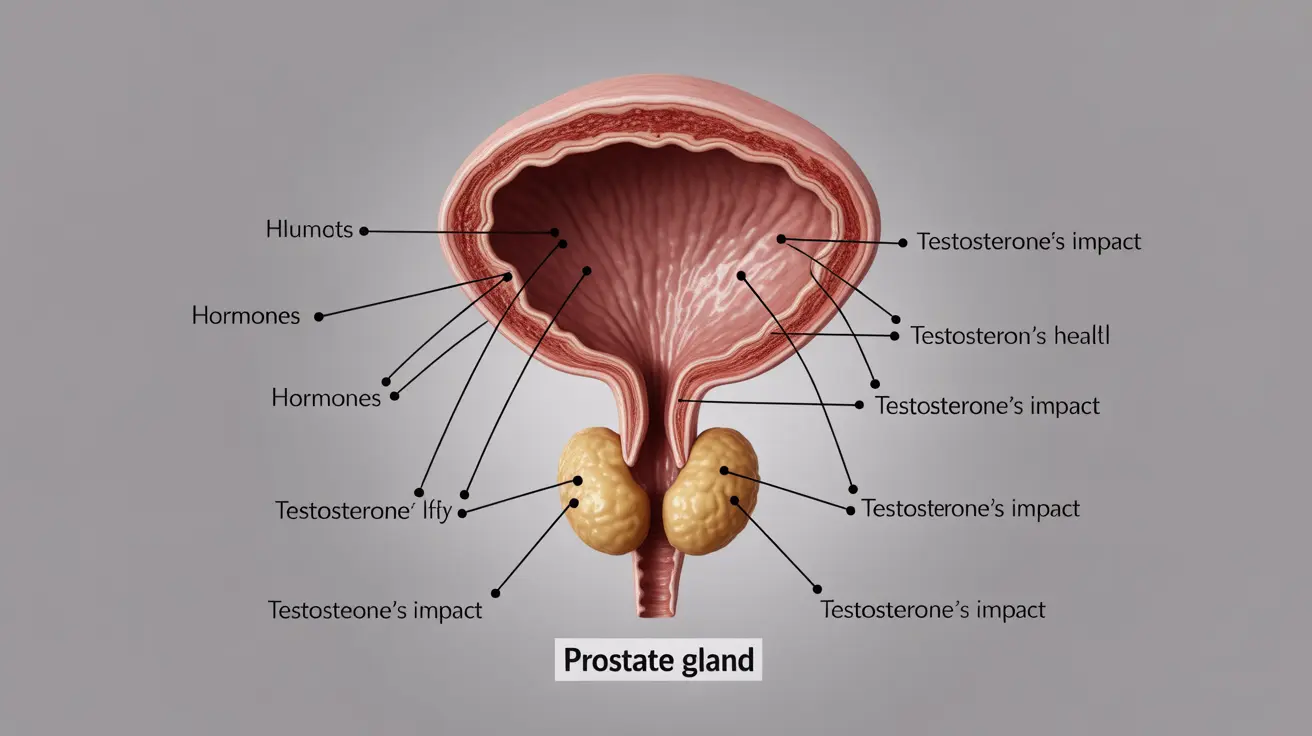The relationship between testosterone levels and prostate health has long been a subject of medical interest and concern for many men. Understanding how low testosterone can affect the prostate is crucial for maintaining men's health and making informed decisions about hormone management and prostate care.
This comprehensive guide explores the complex relationship between low testosterone and various prostate conditions, helping you understand the risks, symptoms, and potential implications for your health.
Understanding Testosterone and Prostate Health
Testosterone plays a vital role in male health, affecting everything from muscle mass to bone density. When it comes to prostate health, the relationship is complex and sometimes counterintuitive. The prostate gland depends on testosterone for normal growth and function, but the interaction between hormone levels and prostate health isn't straightforward.
Impact of Low Testosterone on the Prostate
Physical Effects on Prostate Tissue
Low testosterone levels can affect prostate tissue in several ways. The prostate gland may become less healthy and functional when testosterone levels fall below normal ranges. This can lead to various prostate-related issues, including changes in urinary function and sexual health.
Inflammation and Enlargement Risks
Research suggests that low testosterone might contribute to prostate inflammation and potentially influence the development of benign prostatic hyperplasia (BPH). However, the exact mechanisms behind these relationships are still being studied by medical researchers.
Low Testosterone and Cancer Risk
Recent studies have revealed interesting findings about the relationship between low testosterone and prostate cancer. Contrary to traditional beliefs, some research suggests that low testosterone levels might actually be associated with more aggressive forms of prostate cancer, though this relationship remains an area of active investigation.
Identifying Low Testosterone Symptoms
Common Warning Signs
Men should be aware of several key symptoms that might indicate low testosterone:
- Decreased libido
- Fatigue
- Reduced muscle mass
- Depression or mood changes
- Difficulty with concentration
- Changes in urinary patterns
Prostate-Specific Symptoms
When low testosterone affects prostate health, men might experience additional symptoms:
- Frequent urination, especially at night
- Weak urine stream
- Difficulty starting urination
- Incomplete bladder emptying
Treatment Considerations and Options
Managing low testosterone while considering prostate health requires a balanced approach. Treatment options should be carefully evaluated with a healthcare provider, taking into account individual risk factors and medical history. Testosterone replacement therapy (TRT) might be appropriate for some men but requires careful monitoring of prostate health.
Frequently Asked Questions
Can low testosterone levels increase the risk of developing aggressive prostate cancer? Recent research suggests that low testosterone levels might be associated with more aggressive forms of prostate cancer, though the relationship is complex and still being studied.
Does taking testosterone replacement therapy raise the risk of prostate cancer? Current evidence doesn't conclusively show that TRT increases prostate cancer risk in men with normal PSA levels. However, careful monitoring is essential during treatment.
How does low testosterone affect prostate health and cancer progression? Low testosterone can impact prostate tissue health and function, potentially affecting inflammation levels and cellular behavior. The relationship with cancer progression is complex and depends on various factors.
What symptoms of low testosterone should men watch for related to prostate problems? Key symptoms include changes in urinary patterns, decreased libido, fatigue, and potential changes in prostate-specific antigen (PSA) levels.
Can low testosterone cause prostate problems other than cancer, like benign enlargement or inflammation? Yes, low testosterone may contribute to prostate inflammation and might influence the development of benign prostatic hyperplasia (BPH), though the exact mechanisms are still being researched.
Understanding the relationship between low testosterone and prostate health is crucial for maintaining men's overall well-being. If you're experiencing symptoms of low testosterone or prostate problems, consult with a healthcare provider for proper evaluation and personalized treatment recommendations.




